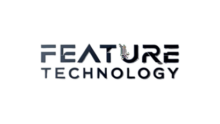Technical writing is perhaps one of the most necessary forms of communication in our society today. We all use at least one product containing technical writing on a daily basis, whether it be the clock/radio on our nightstand or the software installed on our computers.

Whenever we read instructions or manuals about how to use these products, we are engaging in what is known as technical writing. Technical writing is any written text (usually non-fiction) designed specifically for individuals with specialized knowledge or interests. Technical writing, then, is used to communicate information that requires more than general vocabulary or language skills.
Technical writing texts are usually intended for use by people with advanced knowledge in some field of study who need to know technical information about a topic to do their jobs. Technical writers may write text on topics such as medicine, science, engineering, food safety, computing, business management, tourism, and more. They may work primarily in a field that interests them and write about their area of expertise. However, many people specialize in technical writing because their skills are in demand.
Technical writing is useful for any purpose that involves transferring specialized information to a reader. Some types of technical writing include:
- Instructions/guides for consumer products (e.g., manuals on how to assemble furniture or use computer software)
- Instructions/guides for engineering, medical, or scientific instruments (e.g., instruction manuals for microscopes or prosthetic limbs)
- Safety and health information about food production, storage, and service (e.g., how to safely handle poisonous chemicals or restaurant sanitation rules)
- Commercial, technical, and trade literature (e.g., product catalogs, sales proposals)
- Information about business, finance, and other work topics (e.g., policies or procedures manuals, resumes)
- Technology information (e.g., how to use social media)
- Proposals, reports, or evaluations of a project’s success/failures
- Research papers, dissertations, and thesis statements

